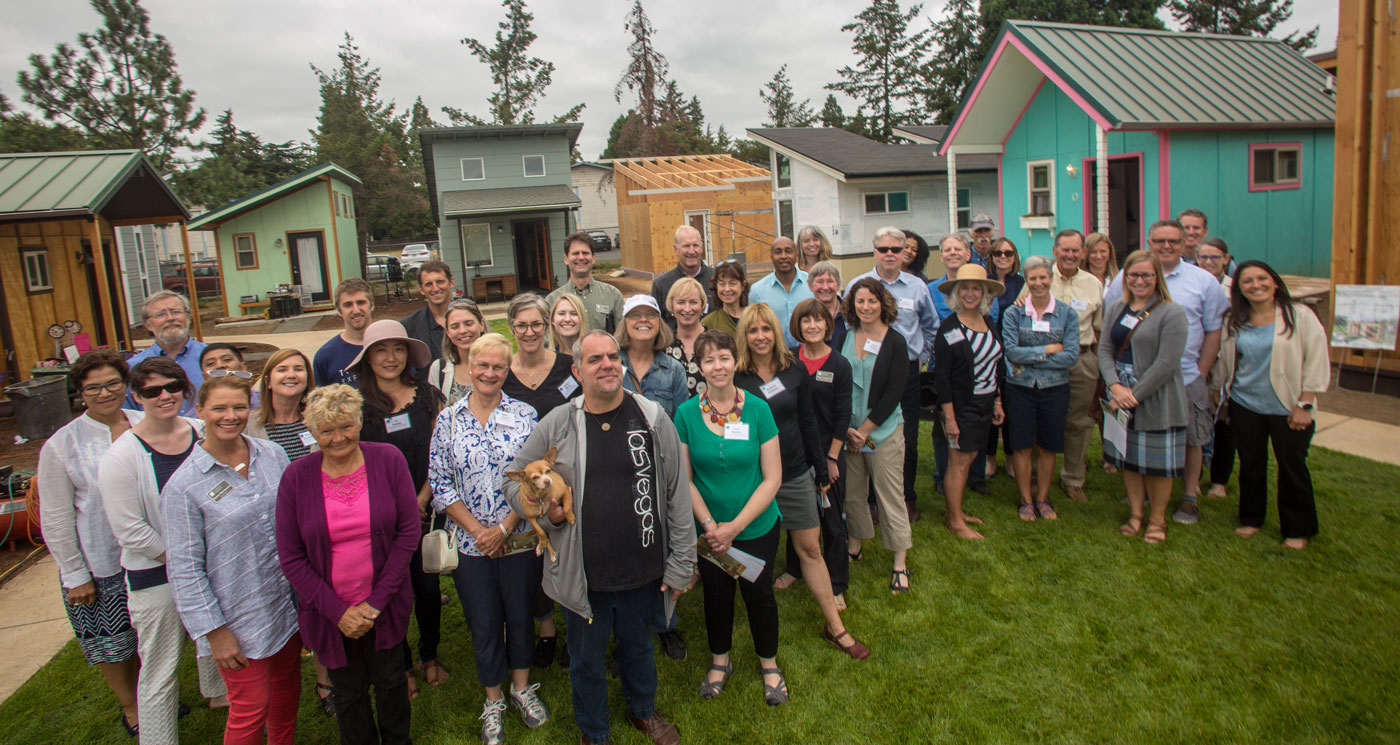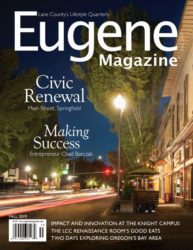For 45 years, Oregon Community Foundation (OCF) has been a philanthropic conduit, connecting generous donors with Oregonians in need. While they are a statewide organization, their satellite offices work directly with representatives and organizations in every region to address their financial needs and put those donated dollars to work. Their Southern Willamette Valley office in Eugene, which was the first regional office established, serves Benton, Coos, Curry, Douglas, Lane, and Linn Counties.
“We take this regional approach through some of our grant-making, through how volunteers help us, and also how we steward and take care of our donors and how we work with perspective donors,” says Sara Brandt, regional director for the Southern Willamette Valley office. “And the beauty of this, I believe, is good service.”
In a normal year, OCF grants out about $100 to 110 million to organizations and those in need in Oregon. But, with the coronavirus pandemic, OCF has had to shift their focus and shift their granting. As of this publication, since the pandemic fully hit Oregon in mid-March, OCF has given $18.1 million in grants to 730 nonprofits throughout Oregon. This amount includes more than $1.1 million to Southern Willamette Valley organizations and more than $1.3 million to statewide organizations. They’ve also received $14.3 million in donations just for their coronavirus relief efforts.
“What hasn’t changed is that we’re still operating and delivering our most vital role, which is to mobilize and deploy resources where they’re needed,” Stephanie Swanson, vice president of communications, says.
They’ve developed three pooled funds focused fully on pandemic relief and recovery:
- Oregon Community Recovery Fund: for community-based organizations at the frontlines providing basic needs, services that create jobs, childcare, social and emotional needs, and strategies for addressing learning loss with school closures.
- Oregon Small Business Stabilization Fund: to support small business owners dealing with reduced sales and revenue so that they can retain their employees
- Oregon Arts and Culture Recovery Fund: flexible resources for the arts and culture community and associated organizations.
“I feel very very fortunate and privileged to work at a foundation that is able to contribute such necessary and vital services to our friends who are really hurting and disproportionately impacted by the pandemic,” Swanson says.
“We’re all jumping across boundaries,” Brandt says. “I think the foundation is a lot more fluid now as we get all hands on deck to help get this money out where it’s needed.” Brandt says they are reaching all sectors, including healthcare, housing and shelter, food access, changes in education systems, and arts and culture.

Both in times of global crisis and during more normal times, the team at OCF is inspired by the work that they do.
“What really inspires me about what I get to do now is the potential for transformational change that I see in the people that we support and the nonprofits,” says John Moriarty, senior program officer for the Southern Willamette Valley. “And now, instead of being focused in one particular area, I have the opportunity to offer that support across a really broad range of work that’s being done. Every day, I’m inspired by the people that we get to support—that’s what makes a real difference for me. And not everybody gets to feel that when they go into work in the morning and I do.”
Brandt says she’s inspired by the people they get to work with. “There are many things that inspire me; maybe that’s part of the answer,” she says. “A lot of people who are wealthy don’t choose to use their wealth for philanthropy. The ones that do with OCF, by and large, a lot of the people that I work with from this huge region: They are humble people, they are people that are so caring and very, for the most part, very intentional about what they’re trying to do.”
Maylian Pak, director of donor relations in the Southern Willamette Valley, echoed her colleagues’ statements.
“I think what I’m currently inspired by is the collective willingness of our colleagues, our donors, our nonprofits to lean in and listen and build trust in ways that existed in the past, but has seem to accelerate during this time,” she says. “I think that a privilege of the work that I do and my colleagues do is that we form close relationships with the donors that we support—whether they’re publicly known or whether they’re anonymous—and the kinds of conversations that we’re having with the people we support maybe look and feel differently now than they have in the past. And so that is something that I am extraordinarily grateful for and inspired by because it gives us the opportunity to have conversations that are authentic in a different way.”
Oregon Community Foundation
Eugene office: 440 E Broadway, Ste. 160
541/431-7099
oregoncf.org


